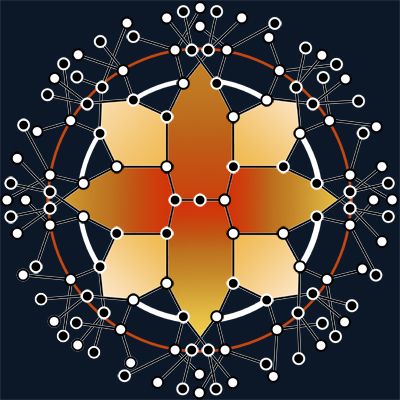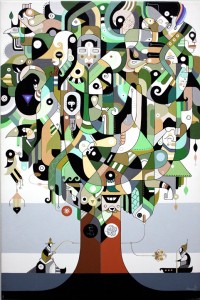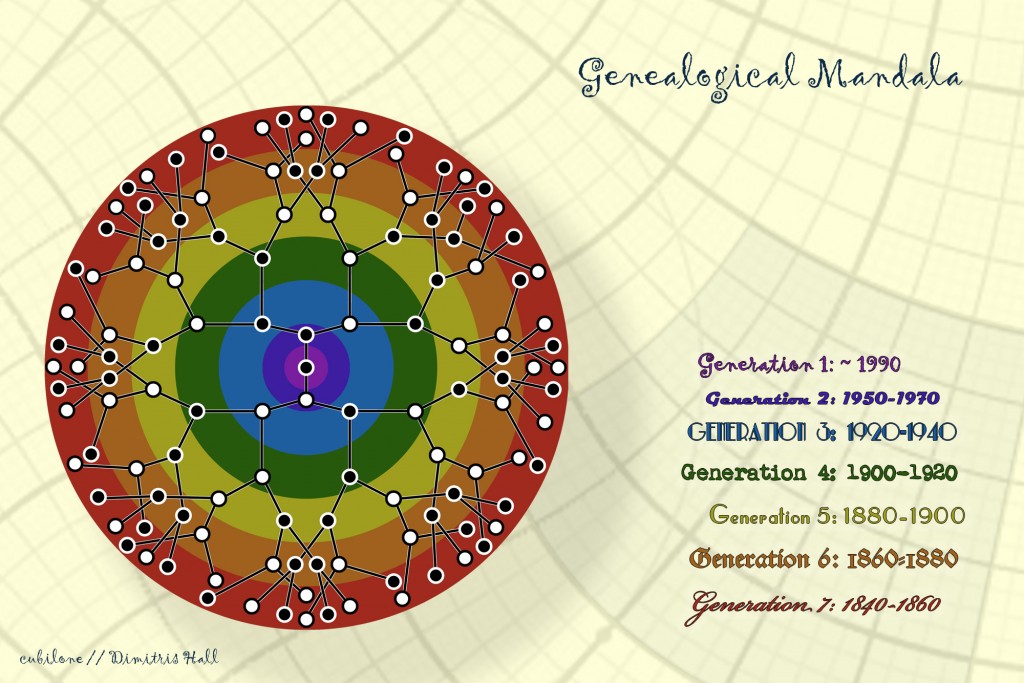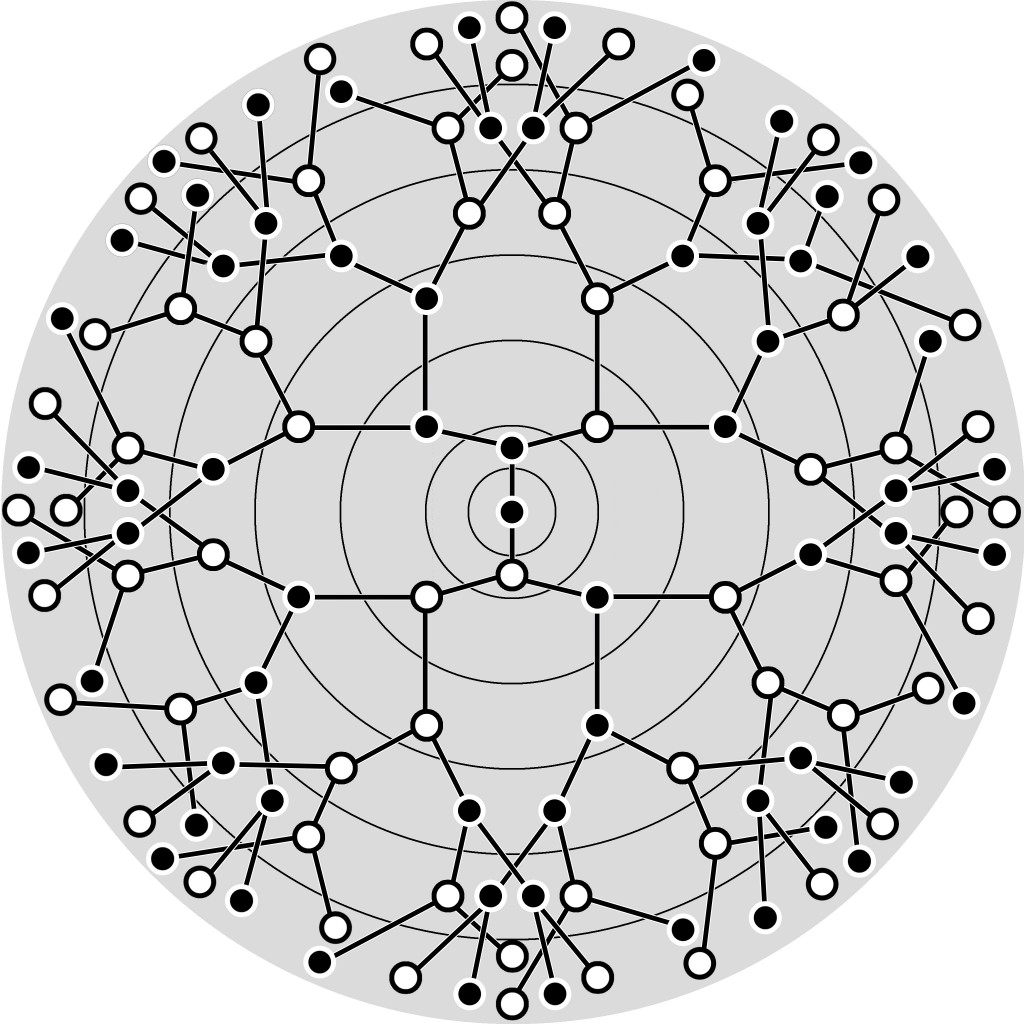Source: NPR
The vast majority of the world’s books, music, films, television and art, you will never see. It’s just numbers.
Consider books alone. Let’s say you read two a week, and sometimes you take on a long one that takes you a whole week. That’s quite a brisk pace for the average person. That lets you finish, let’s say, 100 books a year. If we assume you start now, and you’re 15, and you are willing to continue at this pace until you’re 80. That’s 6,500 books, which really sounds like a lot.
Let’s do you another favor: Let’s further assume you limit yourself to books from the last, say, 250 years. Nothing before 1761. This cuts out giant, enormous swaths of literature, of course, but we’ll assume you’re willing to write off thousands of years of writing in an effort to be reasonably well-read.
Of course, by the time you’re 80, there will be 65 more years of new books, so by then, you’re dealing with 315 years of books, which allows you to read about 20 books from each year. You’ll have to break down your 20 books each year between fiction and nonfiction – you have to cover history, philosophy, essays, diaries, science, religion, science fiction, westerns, political theory … I hope you weren’t planning to go out very much.
You can hit the highlights, and you can specialize enough to become knowledgeable in some things, but most of what’s out there, you’ll have to ignore. (Don’t forget books not written in English! Don’t forget to learn all the other languages!)
Oh, and heaven help your kid, who will either have to throw out maybe 30 years of what you deemed most critical or be even more selective than you had to be.
We could do the same calculus with film or music or, increasingly, television – you simply have no chance of seeing even most of what exists. Statistically speaking, you will die having missed almost everything.
Roger Ebert recently wrote a lovely piece about the idea of being “well-read,” and specifically about the way writers aren’t read as much once they’ve been dead a long time. He worries – well, not worries, but laments a little – that he senses people don’t read Henry James anymore, that they don’t read Sinclair Lewis, that their knowledge of Allen Ginsberg is limited to Howl.
It’s undoubtedly true; there are things that fade. But I can’t help blaming, in part, the fact that we also simply have access to more and more things to choose from more and more easily. Netflix, Amazon, iTunes – you wouldn’t have to go and search dusty used bookstores or know the guy who works at a record store in order to hear most of that stuff you’re missing. You’d only have to choose to hear it.
You used to have a limited number of reasonably practical choices presented to you, based on what bookstores carried, what your local newspaper reviewed, or what you heard on the radio, or what was taught in college by a particular English department. There was a huge amount of selection that took place above the consumer level. (And here, I don’t mean “consumer” in the crass sense of consumerism, but in the sense of one who devours, as you do a book or a film you love.)
Now, everything gets dropped into our laps, and there are really only two responses if you want to feel like you’re well-read, or well-versed in music, or whatever the case may be: culling and surrender.
Culling is the choosing you do for yourself. It’s the sorting of what’s worth your time and what’s not worth your time. It’s saying, “I deem Keeping Up With The Kardashians a poor use of my time, and therefore, I choose not to watch it.” It’s saying, “I read the last Jonathan Franzen book and fell asleep six times, so I’m not going to read this one.”
Surrender, on the other hand, is the realization that you do not have time for everything that would be worth the time you invested in it if you had the time, and that this fact doesn’t have to threaten your sense that you are well-read. Surrender is the moment when you say, “I bet every single one of those 1,000 books I’m supposed to read before I die is very, very good, but I cannot read them all, and they will have to go on the list of things I didn’t get to.”
It is the recognition that well-read is not a destination; there is nowhere to get to, and if you assume there is somewhere to get to, you’d have to live a thousand years to even think about getting there, and by the time you got there, there would be a thousand years to catch up on.
What I’ve observed in recent years is that many people, in cultural conversations, are far more interested in culling than in surrender. And they want to cull as aggressively as they can. After all, you can eliminate a lot of discernment you’d otherwise have to apply to your choices of books if you say, “All genre fiction is trash.” You have just massively reduced your effective surrender load, because you’ve thrown out so much at once.
The same goes for throwing out foreign films, documentaries, classical music, fantasy novels, soap operas, humor, or westerns. I see people culling by category, broadly and aggressively: television is not important, popular fiction is not important, blockbuster movies are not important. Don’t talk about rap; it’s not important. Don’t talk about anyone famous; it isn’t important. And by the way, don’t tell me it is important, because that would mean I’m ignoring something important, and that’s … uncomfortable. That’s surrender.
It’s an effort, I think, to make the world smaller and easier to manage, to make the awareness of what we’re missing less painful. There are people who choose not to watch television – and plenty of people don’t, and good for them – who find it easier to declare that they don’t watch television because there is no good television (which is culling) than to say they choose to do other things, but acknowledge that they’re missing out on Mad Men (which is surrender).
And people cull in the other direction, too, obviously, dismissing any and all art museums as dull and old-fashioned because actually learning about art is time-consuming — and admitting that you simply don’t prioritize it means you might be missing out. (Hint: You are.)
Culling is easy; it implies a huge amount of control and mastery. Surrender, on the other hand, is a little sad. That’s the moment you realize you’re separated from so much. That’s your moment of understanding that you’ll miss most of the music and the dancing and the art and the books and the films that there have ever been and ever will be, and right now, there’s something being performed somewhere in the world that you’re not seeing that you would love.
It’s sad, but it’s also … great, really. Imagine if you’d seen everything good, or if you knew about everything good. Imagine if you really got to all the recordings and books and movies you’re “supposed to see.” Imagine you got through everybody’s list, until everything you hadn’t read didn’t really need reading. That would imply that all the cultural value the world has managed to produce since a glob of primordial ooze first picked up a violin is so tiny and insignificant that a single human being can gobble all of it in one lifetime. That would make us failures, I think.
If “well-read” means “not missing anything,” then nobody has a chance. If “well-read” means “making a genuine effort to explore thoughtfully,” then yes, we can all be well-read. But what we’ve seen is always going to be a very small cup dipped out of a very big ocean, and turning your back on the ocean to stare into the cup can’t change that.





